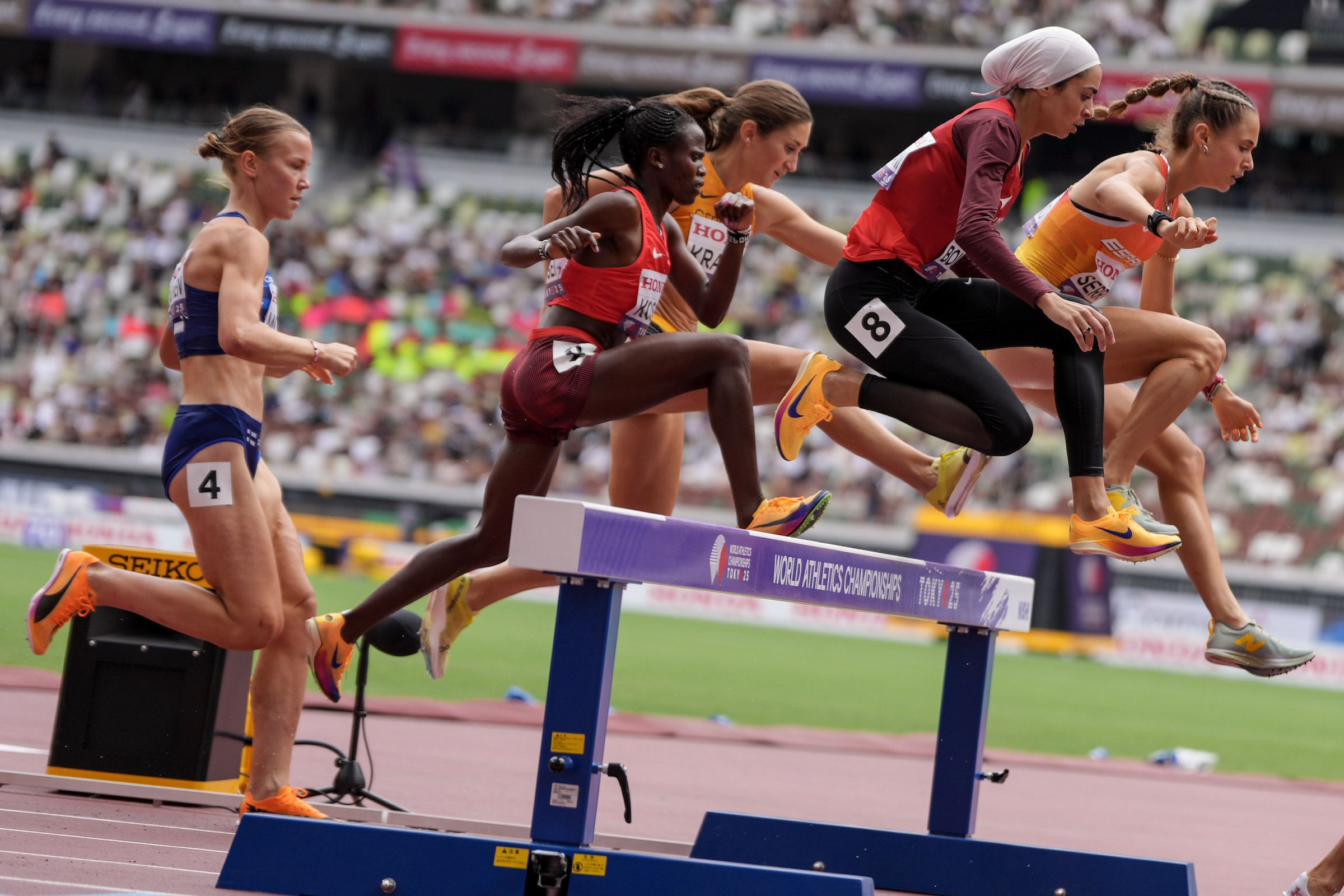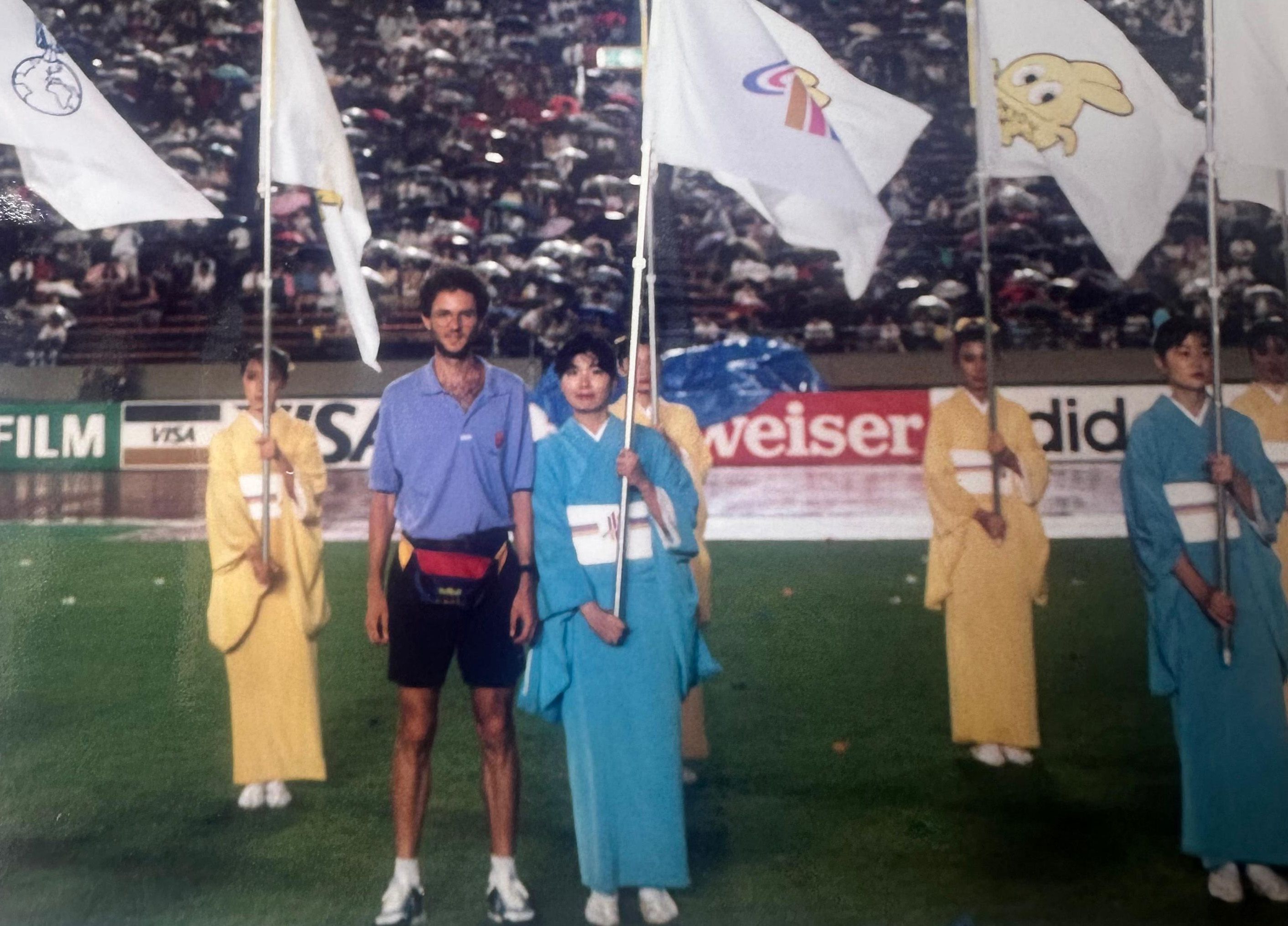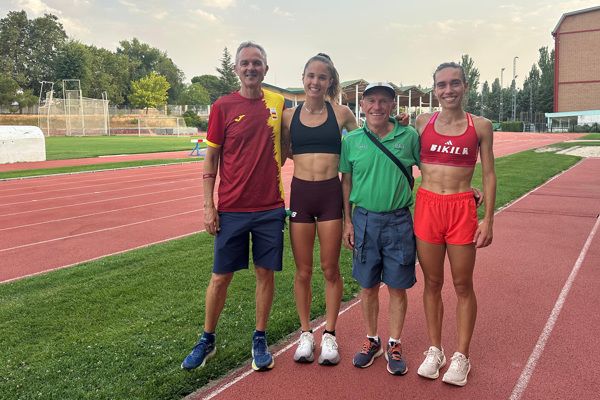It was Tokyo, 1991. The world’s eyes were on the National Stadium, the track hot to the touch and the air heavy with humidity.
Antonio Serrano, then 26, stepped on to the 5000m start line carrying the promise of a new generation of Spanish distance runners. Antonio ‘El Taca’ Prieto, by contrast, arrived with World Championships experience – a cross-country regular who made the 10,000m final in Helsinki in 1983. For both men, it was in Tokyo where they learned how unforgiving the World Championships could be, leaving with little more than a result sheet and the humbling knowledge of what the elite sport demands.
And yet, stadiums keep memories; tracks hold echoes. Thirty-four years later, the National Stadium once again staged the World Championships, a renewed red oval, the same extreme humidity. Serrano and Prieto’s names were long gone from the entry lists, but they resurfaced in another way. Their daughters – Marta Serrano and Idaira Prieto – were the ones stepping out of the tunnel. The baton, in a sense, had been passed.
Antonio Serrano watched from the coaches’ stand, stopwatch in hand and his heart racing as if he were still in spikes. Prieto senior followed from home in Spain, the glow of the television giving him access to a place that had once held his last World Championships. Two men, two vantage points, both bound by the same emotion: their daughters were running where they once had.
“The first thing that came to my mind,” Antonio Serrano recalled, “was the image of myself running there in ’91 – the heat, the stands full, the suffocating humidity. And now, 34 years later, it was my daughter stepping on to that same track. That is unforgettable.”
Prieto, watching Idaira from afar, felt something similar. “When she ran, the nerves were the same as when I competed,” he said. “And for me it was symbolic, because Tokyo 1991 was my last time with the national team. And here, in the same stadium, it was her first global championships. It felt like handing her the last baton.”

Marta Serrano (right) at the World Athletics Championships Tokyo 25 (© World Athletics Dan Vernon)
Marta Serrano, 23, was no stranger to that level of competition. She had made history in Budapest in 2023, becoming part of Spain’s first father–daughter pairing at an outdoor World Championships. Two years later, she returned to the global stage with something more than symbolism. In the 3000m steeplechase heats in Tokyo she finished seventh, not enough for the final but she stopped the clock at 9:21.00 – her third Spanish U23 record of the season, the fastest ever by a Spaniard at a World Championships, and the third-best mark in national history. The result sheet might have her down as “non-qualifier”, but that doesn’t tell the story.
“Competing in Tokyo gave me goosebumps,” she said afterwards. “It gave me inner strength. And it made me want to run even more. Because it was something more special than normal.”
For Idaira Prieto, the whole experience was new. At 28 she had only just broken into senior level athletics: a first international vest at the European Cross Country Championships in Antalya in 2024, a taste of the European Indoor Championships in Apeldoorn, and a Spanish 10,000m title in the spring of 2025. Tokyo was her first World Championships outdoors. She lined up in the 5000m heats and ran 15:11.16, her second-best time ever. Placing 15th in her race left her without a spot in the final, but for her, the numbers mattered less than the resonance.
“I didn’t even know at first that my father had competed there,” she admitted. “He told me he’d run badly, that he was out in the heats. But when I realised I was going to run in the same stadium, it doubled the value. To represent Spain like he did, in the same place, even if he was watching from home… for me it was closing the circle.”
Idaira Prieto on the start line at the World Athletics Championships Tokyo 25 (© Getty Images Christel Saneh)
If medals are the usual currency of athletics stories, this one trades in inheritance. Both women carry not just a surname but a running lineage. Marta’s father was the first Spaniard under 2:10 in the marathon; her mother, Natalia Azpiazu, also competed internationally. Idaira’s father was one of Spain’s great cross-country men of the 1980s, a fierce competitor in mud and spikes. For both daughters, running in Tokyo was less about comparison than continuity – it was about writing their own lines on a page already marked with family ink.
And yet, what does it mean when your coach is also your father? When the person shouting splits is also the person you call when you’re homesick? Both women laughed when asked. “For me, he is more my father than my coach,” Marta said. “The challenge is not to take training back home. Sometimes if a session goes badly it can end in an argument. But the good thing is he knows me better than anyone, as an athlete and as a person. That is priceless.”
Idaira described it differently: “In my case nothing changes. When we train, he is always my father. We are very close. We put a lot of love into training, and I think that’s the key. The challenge is the pressure of having a father who was competing at a high level. But actually, he managed it well with me. It made me stronger.”

Antonio Serrano at the World Championships in Tokyo in 1991
The fathers themselves see the balance differently. Serrano admits that on the track he feels stronger as a coach: “As a father you have to be more flexible, more condescending. But as a coach you take the reins.”
Prieto, meanwhile, insists on a “democratic” approach, being open, equal and flexible while separating the roles as best as he can.
But separation is not always possible. Sometimes advice given on the track comes back to the daughters in moments of solitude.
“When he is not there,” Idaira said, “I remember the workouts we did, all the time we invested. He always tells me to have confidence, to fight. And that is what I try to capture on the track.”
Marta, too, carries her father’s words with her: “He always says I should enjoy it. That helps me relax. And to know he is proud of me, that gives me strength.”
Both men left Tokyo in 1991 with unfinished business. Both returned in 2025 – one in the stadium, one watching from home – to see their daughters take their stories further. There were no medals this time either. But there was something rarer: the closing of a circle, the quiet handover of a baton no camera could catch.
Athletics usually measures time in seconds and places. In Tokyo, it was measured in echoes.
Ainhoa Serrano for World Athletics
Produced as part of the World Athletics Media Academy project


AloJapan.com